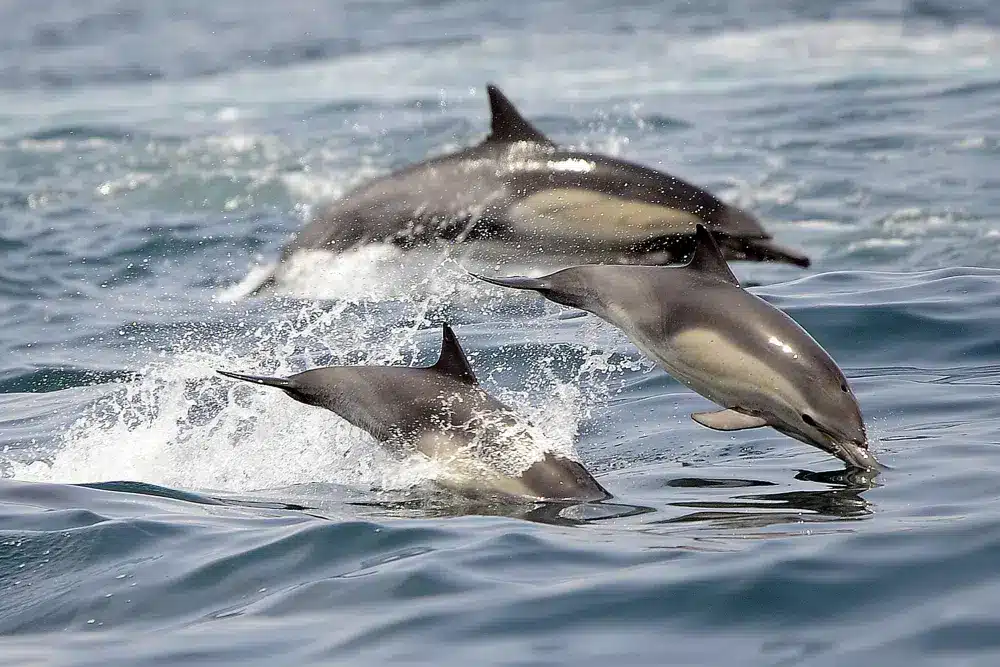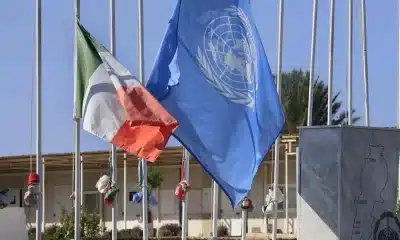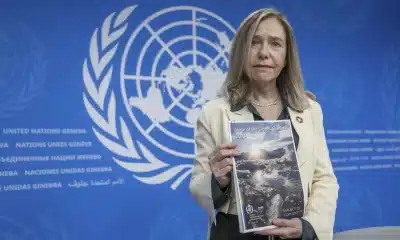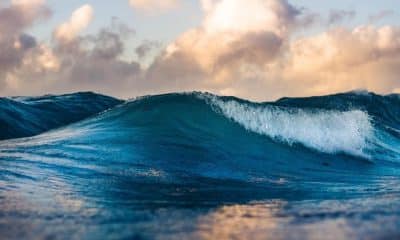Science
UN Ocean Treaty Talks Resume With Goal To Save Biodiversity

United Nations members gather in New York on Monday to resume efforts to forge a long-awaited and elusive treaty to protect the world’s marine biodiversity.
On the high seas, nearly two-thirds of the ocean is outside national borders, where fragmented and unevenly enforced rules seek to minimize human impacts.
The United Nations meetings, which will last until March 3, aim to produce a unified agreement for the conservation and sustainable use of those vast marine ecosystems. The talks, formally known as the Intergovernmental Conference on Marine Biodiversity of Areas Beyond National Jurisdiction, resume talks that were halted last fall due to a lack of agreement on a final treaty.
“The ocean is our planet’s life support system,” said Boris Worm, a marine biologist at Canada’s Dalhousie University. “We didn’t feel we had much impact on the high seas for a long time. But that has changed as deep sea fishing, mining, plastic pollution, climate change, and other human disturbances have increased.
The United Nations talks will center on key issues such as who should draw the boundaries of marine protected areas and how. How should institutions evaluate the environmental consequences of commercial activities like shipping and mining? And who has the authority to enforce the rules?
An Agreement Is Urgently Needed To Save The Oceans And Our Planet
“This is our largest global commons,” said Nichola Clark, an oceans expert for the nonpartisan Pew Research Center in Washington, D.C. “We are optimistic that the next round of negotiations will result in a treaty being signed.”
The talks’ goal is not to designate marine protected areas but to create a mechanism for doing so. “The goal is to create a new organization that will accept submissions for specific marine protected areas,” Clark explained.
According to marine biologist Simon Ingram of the University of Plymouth in England, an agreement is urgently needed. “It’s a pressing time for this, especially with things like deep-sea mining that could be a real threat to biodiversity before we’ve even surveyed and understood what lives on the ocean floor,” Ingram said.
Experts believe a global oceans treaty is required to enforce the United Nations Biodiversity Conference’s recent pledge to conserve 30% of the planet’s oceans and land.
“We need a legally binding framework that allows countries to work together to achieve these agreed-upon goals,” said Jessica Battle, an oceans governance expert at the World Wide Fund for Nature.
United Nations Is Working Hard To Keep Peace And Protect The World
According to Monica Medina, Assistant Secretary of State for Oceans and International Environmental and Scientific Affairs, the treaty is a priority for the United States. “For the first time, this agreement seeks to establish a coordinated approach to establishing marine protected areas on the high seas,” she explained. “It’s time to complete the task.”
Officials, environmentalists, and representatives of global industries that rely on the sea are all keeping a close eye on the negotiations.
Gemma Nelson, a Samoan lawyer and Ocean Voices fellow at the University of Edinburgh, stated that small Pacific and Caribbean island countries were “especially vulnerable to global ocean issues” such as pollution and climate change, which they did not cause and did not have the resources to easily address.
“Getting the traditional knowledge of local people and communities recognized as valid,” she added, is also critical to protecting ecosystems and Indigenous groups’ ways of life.
With high seas covering nearly half of the planet’s surface, the talks are critical, according to Gladys Martnez de Lemos, executive director of the nonprofit Interamerican Association for Environmental Defense, which focuses on environmental issues in Latin America.
“The treaty should be strong and ambitious, with authority to establish high and fully protected high seas zones,” she said. “At the United Nations these weeks, half of the world is at stake.”
SOURCE – (AP)





































